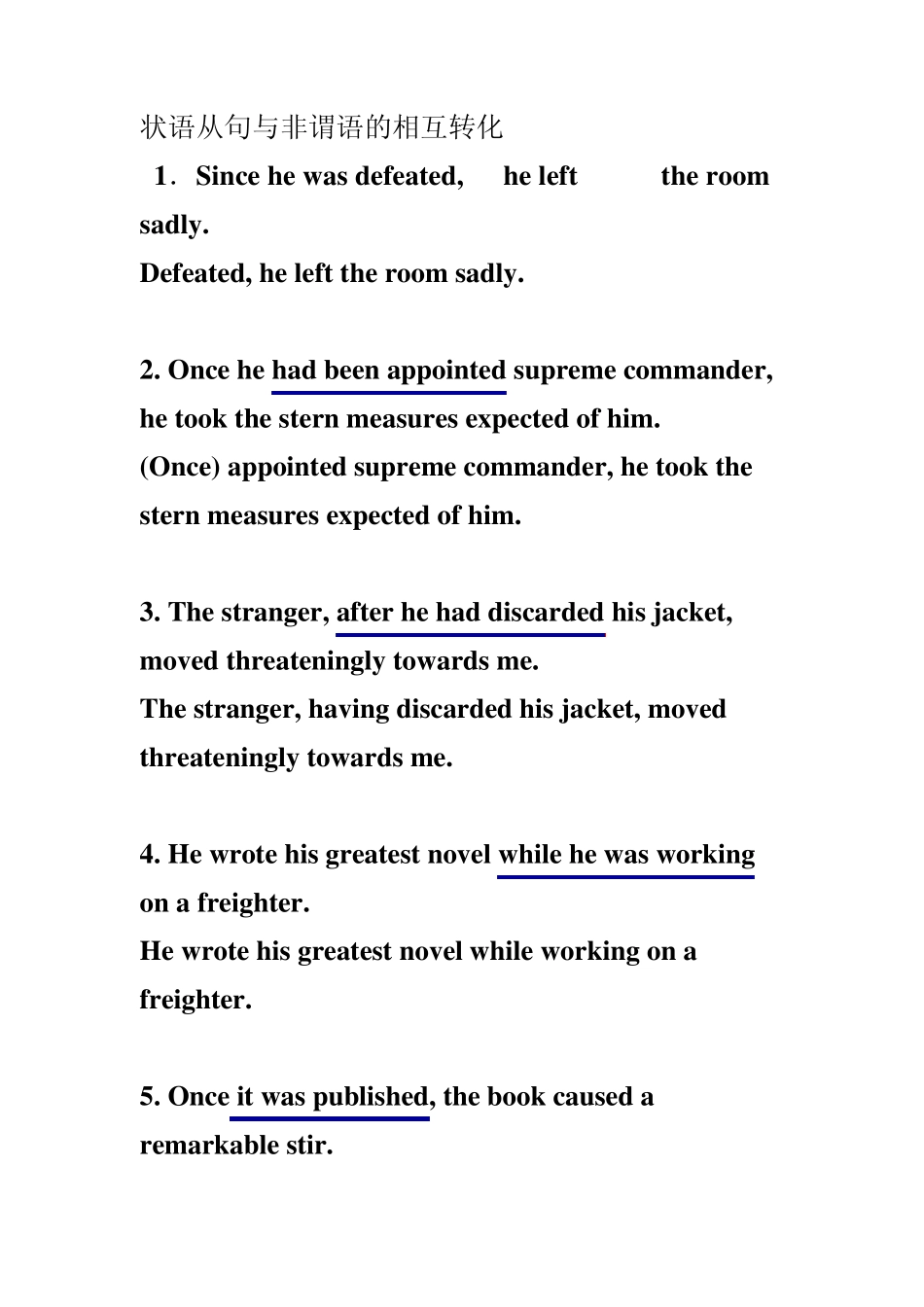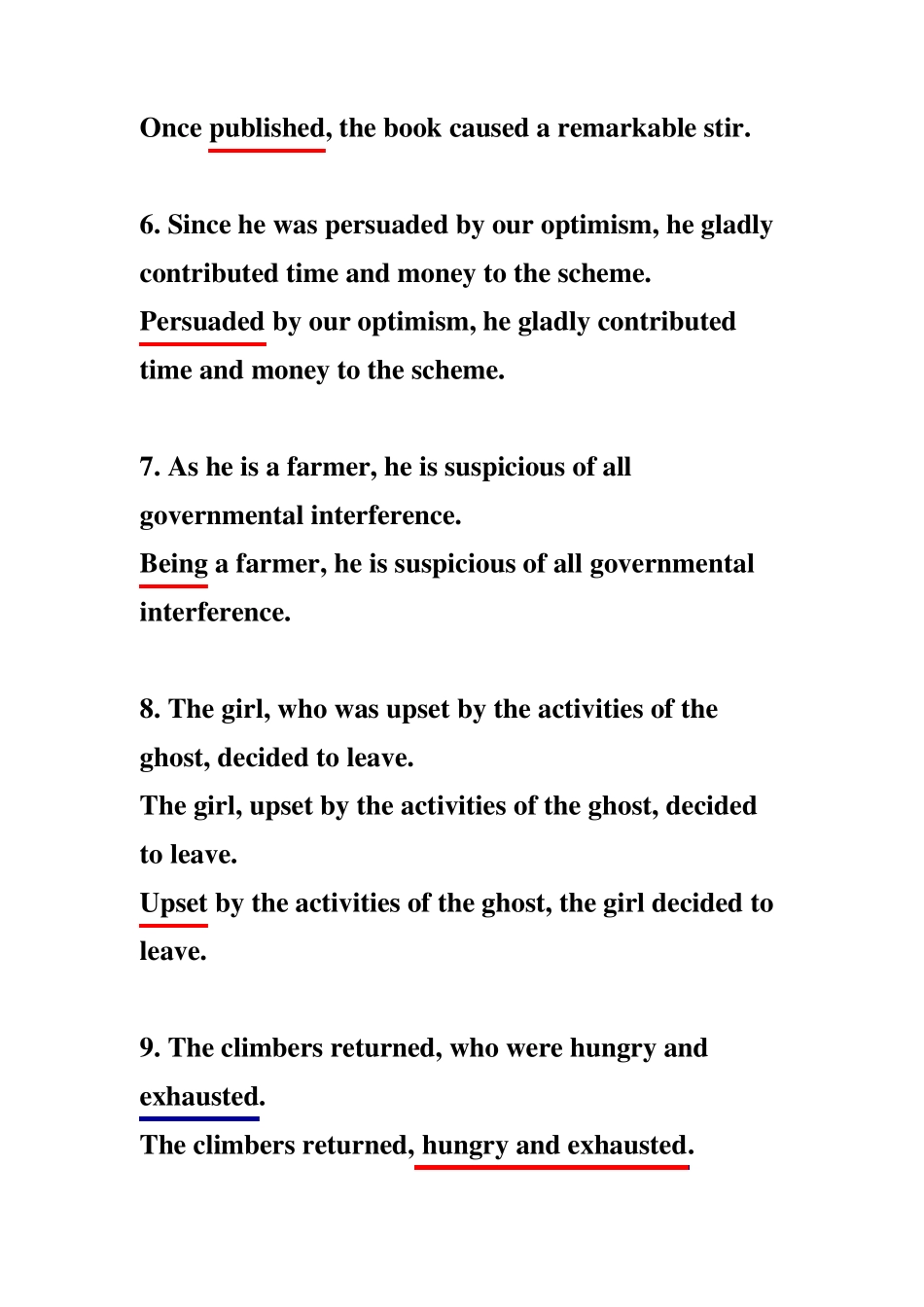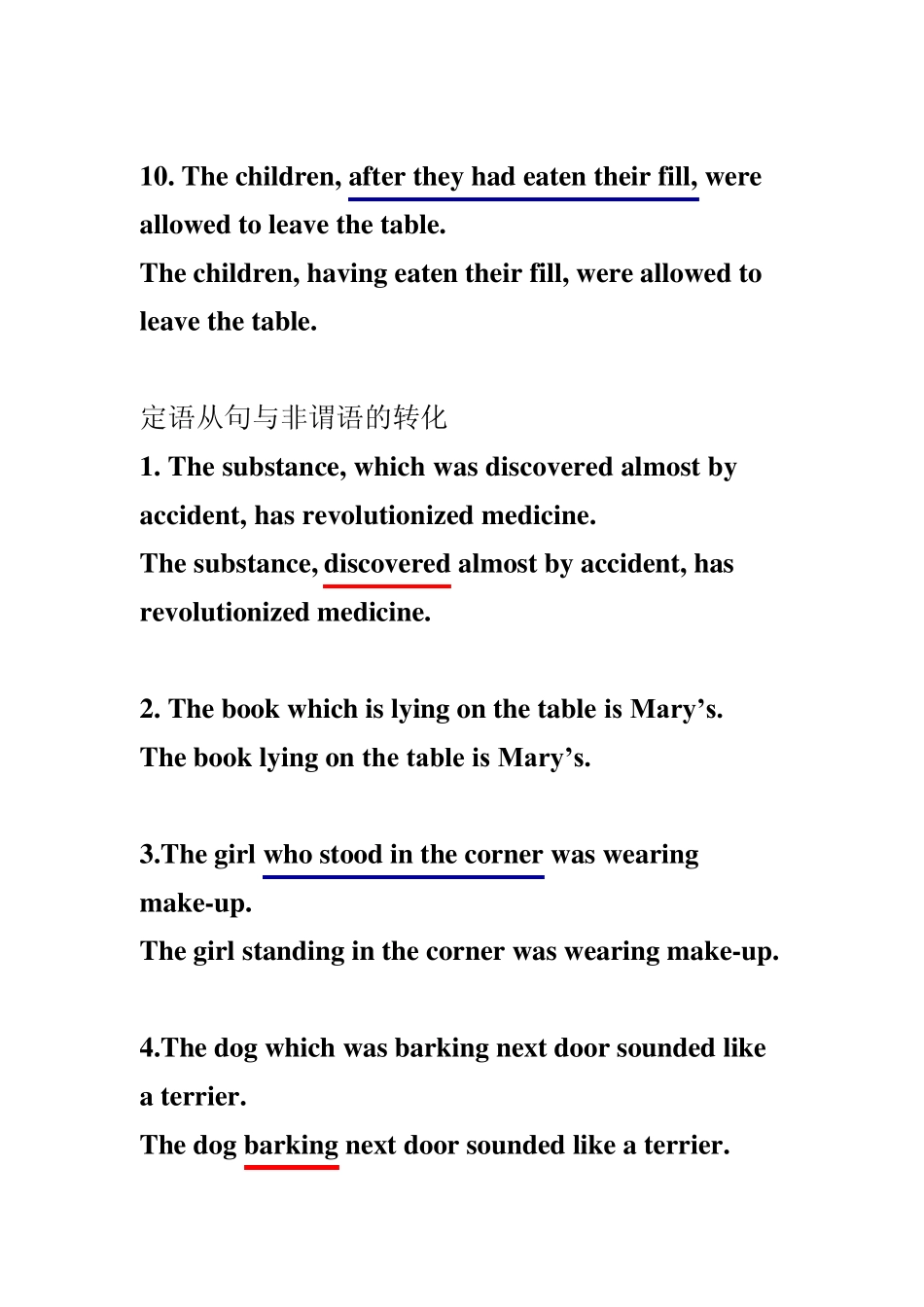状语从句与非谓语的相互转化 1.Since he was defeated, he left the room sadly. Defeated, he left the room sadly. 2. Once he had been appointed supreme commander, he took the stern measures expected of him. (Once) appointed supreme commander, he took the stern measures expected of him. 3. The stranger, after he had discarded his jacket, moved threateningly towards me. The stranger, having discarded his jacket, moved threateningly towards me. 4. He wrote his greatest novel while he was working on a freighter. He wrote his greatest novel while working on a freighter. 5. Once it was published, the book caused a remarkable stir. Once published, the book caused a remarkable stir. 6. Since he was persuaded by our optimism, he gladly contributed time and money to the scheme. Persuaded by our optimism, he gladly contributed time and money to the scheme. 7. As he is a farmer, he is suspicious of all governmental interference. Being a farmer, he is suspicious of all governmental interference. 8. The girl, who was upset by the activities of the ghost, decided to leave. The girl, upset by the activities of the ghost, decided to leave. Upset by the activities of the ghost, the girl decided to leave. 9. The climbers returned, who were hungry and exhausted. The climbers returned, hungry and exhausted. 10. The children, after they had eaten their fill, were allowed to leave the table. The children, having eaten their fill, were allowed to leave the table. 定语从句与非谓语的转化 1. The substance, which was discovered almost by accident, has revolutionized medicine. The substance, discovered almost by accident, has revolutionized medicine. 2. The book which is lying on the table is Mary’s. The book lying on ...


